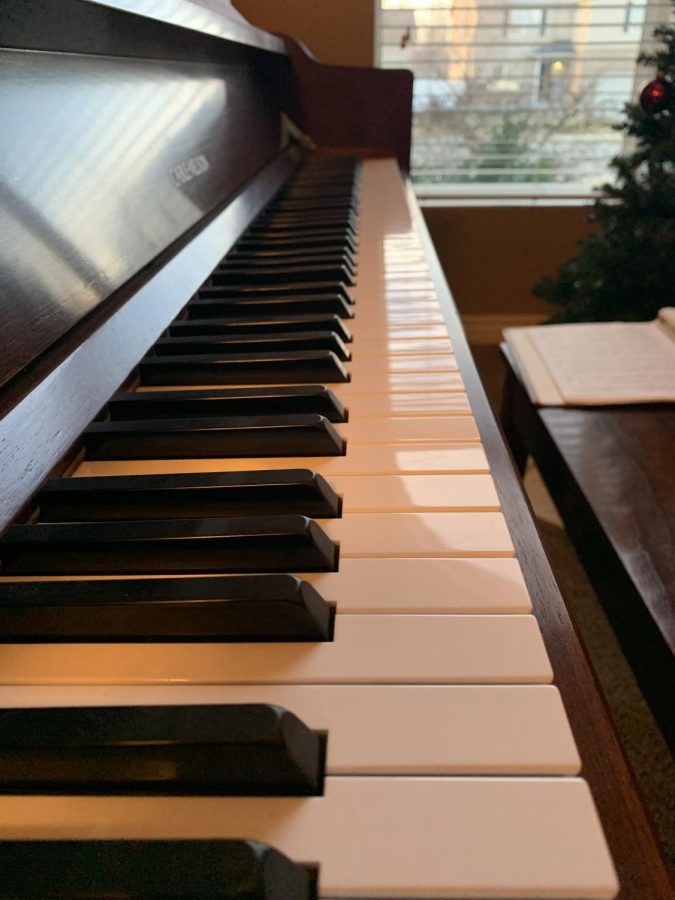Music and the Teenage Mind
January 11, 2022
Music is hands down one of the greatest things in existence. It can be found anywhere–even in nature–and it’s one of the universal languages that ties us all together. Millions of songs and countless genres, instruments, and artists ensure everyone has something to jam out to. Without music, life would be pretty depressing because music provides an escape when you need to unwind and take a break from the world.
Even though everyone listens to music, I think it’s safe to say teenagers are some of the people most impacted by it. As our parents like to remind us, our brains are still developing, which is why music can have such a huge influence on us at this age. So what happens when we listen to music?
According to hopkinsmedicine.org, listening to music “provides a total brain workout.” It stimulates your brain and can help improve things like your memory. I can attest to this because in eighth grade, I had to memorize the names of all the states and their capitals. I used the tune of one of my favorite Hannah Montana songs and went through each state to sing its name and capitol to the tune of that song and I got 100% on my test. If that doesn’t convince you that music improves your memory, then I don’t know what will.
Music can also help improve your mood and mental health. When you listen to music, the chemicals dopamine, serotonin, and oxytocin are released in your brain. This is absolutely amazing because dopamine makes you feel good, serotonin helps with things like stabilizing your mood, and oxytocin nurtures your ability to be able to connect with other people. (Maybe that’s why at concerts when you see people screaming at the top of their lungs and dancing and doing random crap, you don’t question it because you’re doing the exact same thing.)
Music has also been proven to lower anxiety, alleviate pain, lower stress, and help you sleep better. This is especially beneficial to us as teenagers because we’re constantly sleep deprived, stressed, and anxious. And I’ve never met someone who didn’t like music so if you don’t know what you like, or you’re sick of what you listen to right now, look for something new.
“I like music because it helps me either focus, calm down, or get hyped and it’s just fun to listen to. Music makes me feel like I’m in heaven and I play instruments or create music for at least an hour everyday. I also listen to music for at least 2 hours a day,” senior, Marie Tew, said.
“Music helps me focus and it motivates me and makes me feel dedicated and driven and I listen to music for about 3-4 hours a day,” senior, Danny White, said.
That’s one of the best things about music! No matter how weird of a mood you’re in, you’ll find something to comfort you and/or make you feel good and motivated to get things done. And one of the greatest feelings known to man is finding a song that describes exactly how you’re feeling. (Especially if you don’t know how you feel until you hear that song.)
“What I listen to depends on the situation, but I usually bring something up like Lofi or ambient noise when I’m doing school work to block out the noise. And as weird as it may sound, I can use music to amplify or settle a mood. I like music because it does a lot of the feeling for me, since I find it hard to recognize and articulate that stuff by myself,” senior, Ian Regis, said.
I think a lot of the time we take music for granted because it’s everywhere and so readily available to us, but without music our life would be really dull. (Think about it. Have you ever rewatched a scene of a movie without the music that’s usually in it? It feels really weird and without it the movie doesn’t capture your attention, interest, or emotions as well.)
If you take anything away from this, just remember to be grateful for music. Music is meant to make you happy and to help you feel heard when you don’t know how to say how you feel.
And just like Louis Armstrong once said, “music is life itself.”





